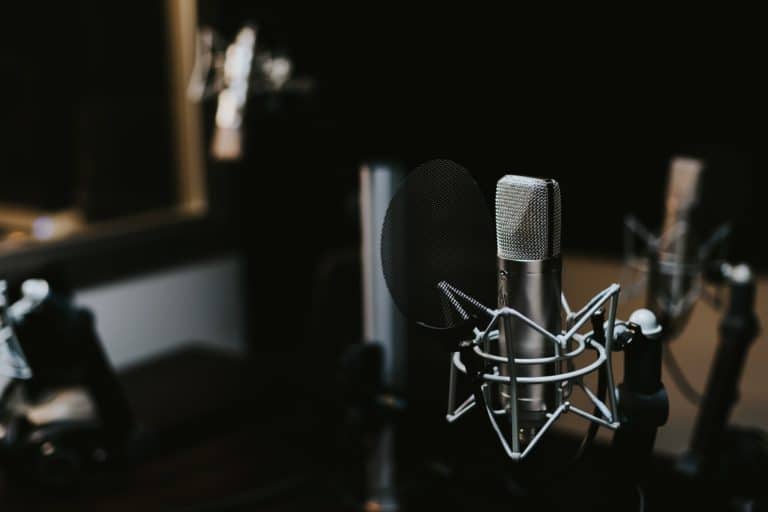OMG! You’re Starting a Podcast
It all starts with an idea, a thought, an opportunity. That’s all you need. It’s time to start a podcast! But wait, how do you do that? Well, what person is better to explain it than someone with a podcast! There are many steps to starting a podcast. However, it’s easier than you think! Let’s get started!
1. Finding An Idea
Every podcast needs to have a topic. Something to focus all content around. Try to always base a podcast around an idea, not an idea around a podcast. In other words, only start a podcast when you have a good idea to go along with it.
Before you start your podcast, always make sure of two things:
- You are well educated on your topic. You need the knowledge to cover it extensively.
- You have a quality podcast topic. Make sure your idea can be interesting in a podcast. No one wants to listen to random nonsense!
2. Defining a Structure
Wow, there is still lots to do! It’s time to define a structure for our podcast, and we need to make some important decisions.
First off, it’s time to find a co-host! A co-host is a person with knowledge of your topic, who hosts your podcast with you. A co-host is completely optional, and you are free to host this podcast on your own. However, co-hosts add lots of conversational value and make your podcast more interesting. So, I would recommend one! Every co-host needs to know a lot about your topic, and they need to know you!
Secondly, your need to organize your episodes! Every episode needs to have a structure. Would you like your episodes to be broken up into segments, or one big conversation? A segmented episode is great for lots of topics, and a big conversation is great for, 1 topic. It is also important to script an episode with talking points or discussion questions!
Lastly, it’s time to name your podcast! Your podcast name should reflect what you do. For example, at Topic Forever we have lots of topics. So, we called it Topic Forever! Make sure to do a quick web search to check if your podcast name is already taken!
3. The Tech Stuff
Now that we have made most of the important decisions, it’s time to set up our podcast! You may have heard of podcast listening platforms like iTunes, Spotify, or Google Podcasts, but little did you know, you must host your podcast somewhere else to feature it there. This means that you have to get another company to create a special feed for your podcast and share it with other platforms.
Some platforms require payment to use or have limited free versions, but there are still some platforms that can host completely free. I always recommend Anchor hosting by Spotify because they provide unlimited podcast hosting and other great features. With Anchor, you can easily set up your podcast, and distribute it to other platforms. They will guide you through rendering details in the setup dialogue. Just beware, some listening platforms require content before you can be featured on their catalogue. You can learn about trailers and episodes in section 4!
Alternatively, you could purchase your own server, take care of it, and host your podcast manually. However, that is highly discouraged for everyone except large companies.
Every podcast should also have eye-catching cover art to pull listeners in. I would recommend Canva, because you can easily create beautiful cover art and images for your episodes!
We also need to consider recording! If you have a co-host, will you be meeting in person, or recording remotely? For remote recording, I would recommend Zencastr, because they offer a great free plan with lots of selection! If you are recording in person, it is best to use one mic for your first few months. This will make avoiding echoes easier. Additionally, make sure to start your podcast, and create several episodes before investing money in any equipment. I spent many months podcasting using a laptop mic before purchasing equipment.
4. Your First Episode
Now that you’ve organized all of your content and equipment, we need to make a trailer and our first episode!
Let’s start with the trailer. Imagine your trailer is a commercial for a TV show or movie. It needs to tell people what you’re talking about, and get them excited to listen to the show! As an example, take a listen to the Topic Forever Season 2 trailer:
This trailer is very brief, making sure that the listener doesn’t click away. It showcases details about the podcast, and gives reasons to get excited!
Make sure to post your trailer a few weeks before your first episode! Talking about first episodes, it’s time to make one! Let me guide you through the checklist:
- Scripting. Because this is your script, I can’t give you too many directions on this. However, I would recommend making talking points and discussion questions instead of word-to-word scripting. For example, you could make a bullet list that includes things like this:
We had our first performance yesterday. What was your favourite part?
- Recording. You’ve got all the tech stuff sorted out already, so setup should be pretty easy! You can record for as long as you want, but I would recommend moving on if a topic gets ‘stale’ or boring.
- Editing. I can’t stress this enough. Please take the time to edit episodes! Editing is what turns your recording into an episode. It can help remove mistakes, speed up the pace, make your episode sound better, and more! With that said, there may be some situations where you could minimize the editing. This may occur in a slow-paced conversation episode. With regards to editing software, please don’t spend your money on a premium version, as there is tons of free software out there that does a great job. I would recommend Audacity for editing audio. It may look a bit confusing at first, but you’ll be a pro after about ten minutes! This application also has a built-in audio recorder, which is great for one microphone scenarios. Make sure to listen to the episode multiple times after editing, and fix any mistakes!
- Publishing. Every episode goes along with a title, description, art, and any extra data. Let’s start with the title. Your title should be around 50 characters, easy to understand, and eye-catching. Here is a great example: #56 Share Buttons Are Useless, Remove Them Now. This is an amazing title because it explains the main topic for the episode, the idea is easy to comprehend, and it gives people a reason to listen! For your description, you should explain your episode in detail, and include attribution to any materials you have used. Just know that providing attributions does not mean you can use copyright-protected material. However, some licences require credit. Lastly, we’ll make our episode art! Try using the same program for your cover art and episode art. Every episode art should include some graphics related to episode content, your podcast name, and lots of colours! You can upload your art in the episode creation process of most hosts.
5. Share, Share, and Share!
Please do not expect substantial growth of your podcast for many months. Listener growth will only occur if you promote your podcast in strategic ways. If I could recommend one way to grow your podcast right when you start, it would be to share it with everyone you know! From there, you can ask them to share your podcast, and soon enough, you will have a few listeners!
There is still lots more to be done to promote your podcast. Take a look at this article from Anchor, on very helpful promotion tips!
6. Check Back In a While
Pretend this section is a counting timer, and you should only open it when you have been podcasting for a few months. Even more great ideas will be provided! However, these tips are only helpful after a few months of podcasting. So, don’t open too early!
Open Me When You’re Ready
Get ready for some quick tips on how to improve your podcast! Here we go!
- Keep thinking of new topics for your show. Don’t reuse too many times!
- Get out there! Do things that no podcast has done before. Now everyone is listening to you!
- Keep sharing your podcast with everyone!
7. You Did It!
Wow! We did it! We made a podcast together. Let’s do a quick review of what we accomplished.
- We found our podcast idea
- We found a partner
- We figured out the episode
- We hosted our podcast
- We wrote a script
- We promoted our podcast
Congratulations! It is a big job to start a podcast, and you did it. From everyone at Topic Forever, we wish you a wonderful podcast career! Good luck!




